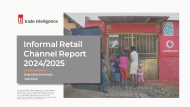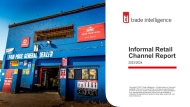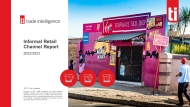Unlock the nuanced dynamics of South Africa's informal market with our strategic report to thrive in this unique sector.
The informal sector in South Africa provides employment and alleviates food insecurity for millions. It supports those marginalised by the formal economy, fostering entrepreneurial spirit and resilience.
Technological advancements and changing consumer preferences have evolved the sector, making it resilient despite economic challenges and load shedding. Driven by micro-enterprises across multiple sectors, the ‘kasi economy’ remains dynamic and an indispensable market for FMCG businesses looking to grow.
For more information or to order your report, please contact us on +27 (0) 31 303 2803 or info@tradeintelligence.co.za
















